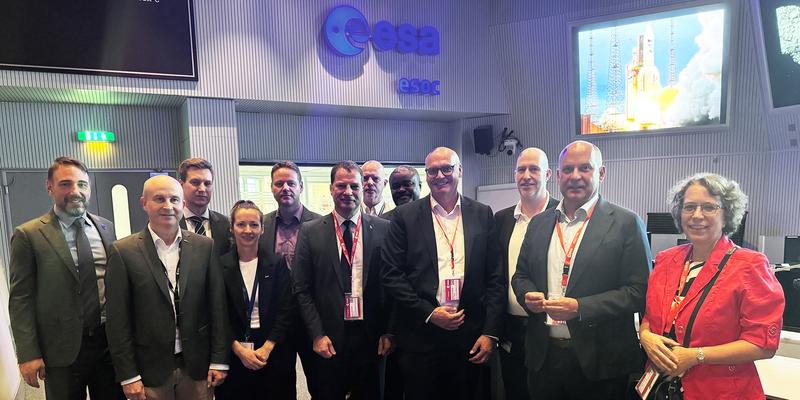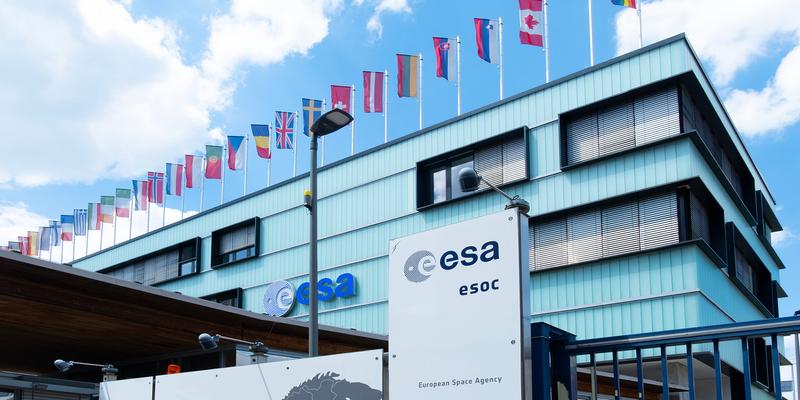On the last stop of his eight-day summer tour on “Crisis Preparedness and Resilience”, Hessian Minister of the Interior Roman Poseck visited the European Space Operations Centre (ESOC) of the European Space Agency (ESA) in Darmstadt on Friday, August 1. Michèle Knodt, deputy coordinator of emergenCITY and director of the Application and Transfer Centre “Digital Resilience Xchange (DiReX)”, accompanied him.
“The focus was on how space technologies can make our society more robust and resilient – especially in times of growing crises,” said Michèle Knodt.
Satellites not only explore space, but also provide important data on extreme weather events and natural hazards. In crises, they can help ensure communication. In addition, new technologies from space can help make society as a whole more resilient.
Key role in crisis communication
Minister Roman Poseck emphasized: “ESA is a key player in the field of cybersecurity. As an operator of critical infrastructure, especially with regard to crisis communication, it plays a key role. Its expertise and outstanding position as a leading authority on cybersecurity, based in Hesse, are of great value to the state.”
Dr. Holger Krag, Deputy Center Director, explained: “Our European Space Operations Center is responsible for operating ESA satellites safely, reliably, and efficiently. Operating satellites requires specialized cybersecurity measures and the continuous development of dedicated, critical infrastructure. We manage a fleet of 28 unique satellites, each of which plays a crucial role in monitoring and exploring not only Earth but also the depths of our solar system. This creates a very different threat landscape compared to a traditional IT environment. It requires innovative and differentiated solutions.”
During his summer trip this year, the minister visited various institutions, such as companies, research facilities, fire departments, and aid organizations, to learn about their measures for protecting against crises and strengthening resilience.
Presse release about the visit (in German)




